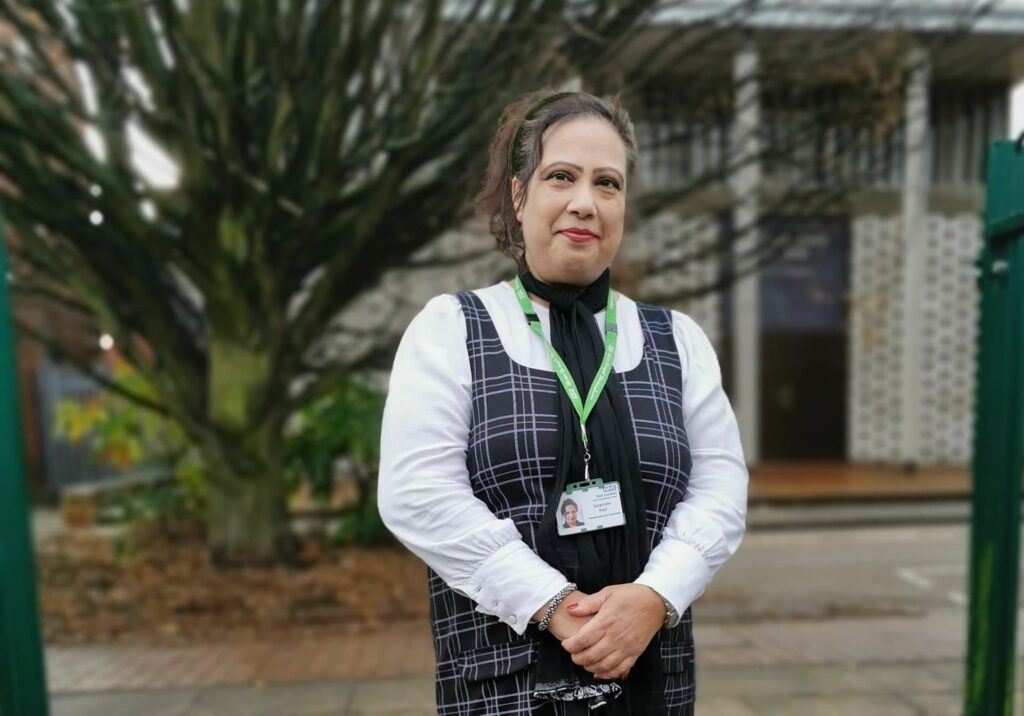QI at 10: Satwinder’s Journey

What ways have you used to engage people in QI?
I engage people through sharing my QI journey at the Trust that began in August 2016 to the present. As a patient and QI coach at ELFT, I feel privileged to engage patients, carers and staff by sharing the powerful impact through telling my stories of involvement, as a patient to being empowered to lead through training and my intrinsic motivation that has led me to coach professional teams, and enhance patient and carer involvement through co-producing meaningful change through co-production.
How do you bring creativity to the way you engaged people in QI?
For me QI and the systematic process gives creativity a structure that is often lost through the chaotic experience of mental illness. Through QI, I have taken my ‘Tea Party Poetry’ to an acute inpatient male ward. This was part of the first service user-led project that won a national innovation in mental health award in 2018. I think it is important to have a thinking space where ‘there are no boxes.’
What approaches have worked well?
As a QI coach, I really enjoy working with teams, and enabling all team members through QI tools and methodology. I think it is important to recognise the positive practice, that is part of daily work, and QI team meetings give an opportunity to reflect and improve individual input.
When is QI needed?
When a team is disconnected through the healthcare system challenges of staff shortage and limitations on time. As a QI coach, this is when QI is most needed to strengthen connections and discover pathways that can simplify processes, and test small change ideas, and eliminate negativity.
For me as a QI coach, who still stays involved as a patient in QI projects, I encourage patients to see me as living evidence of empowerment through QI. As part of a team I also deliver training that has been co-designed and is always co-facilitated with professional, patients and carers.
I do think that clinicians and team leads see the evidence-based data as a meaningful way to drive QI.
I feel that my first project as a QI coach is an example of great teamwork and demonstrates the importance of empowering team members to develop intrinsic motivation. For me coaching a project is about setting the ground for continuous improvement beyond the life of the project. I cannot resist the temptation to mention the inspiring team involved in the Oakley Court project!
How has QI helped you develop?
I feel honoured to be a national patient representative on the QI committee at the Royal College of Psychiatrists, since May 2018. This has given me opportunities to co-produce QI and have an impact at a national and international level. This had led to other national advisory roles that have given me incredible opportunities to influence national QI collaboratives and advance equality in multi-agency partnerships to improve mental healthcare.
WATCH an interview with Satwinder here:
